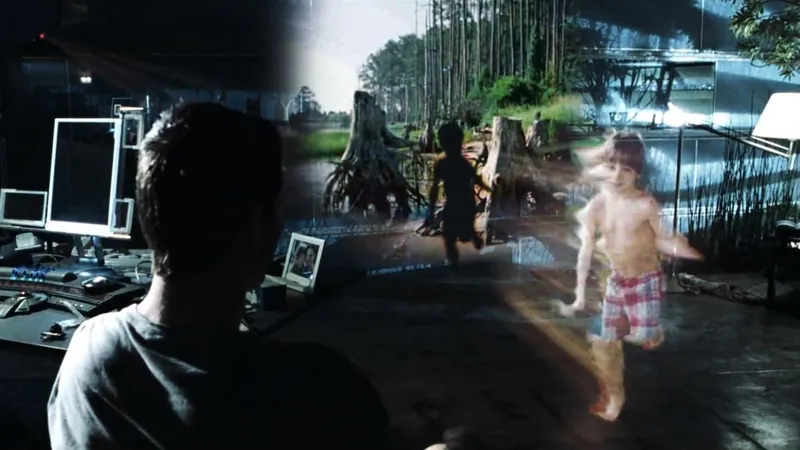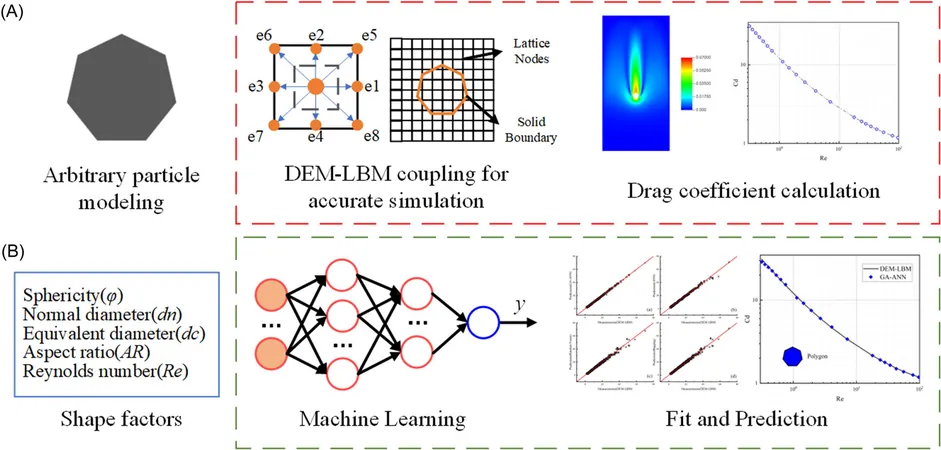
A Journey Through Time: How ‘Minority Report’ Captured the Essence of Memory and Loss
2024-11-04
Author: Siti
Introduction
Have you ever encountered a piece of art so subtle that it barely registered at first, only for its full impact to resonate with you days, months, or even years later? This phenomenon is beautifully explored in a recent video essay by Cormac Donnelly, a senior lecturer in film at Liverpool John Moores University in the UK. His compelling work centers around a poignant scene from Steven Spielberg's acclaimed 2002 film, *Minority Report*, where the protagonist experiences an unsettling reunion with a holographic representation of his deceased son.
Donnelly's Exploration
Donnelly's video essay is inspired by a “prompt text” from media scholar Ariel Avissar, and it intricately intertwines various elements: scenes from *Minority Report*, a review Donnelly penned in his youth, thought-provoking philosophy lectures, and his curated collection of materials related to the film. The resulting piece is not just a reflection but a profound meditation on the dynamic interactions between art, memory, and personal experience.
Themes of Loss and Memory
The scene in question serves as a universal metaphor for loss and longing, evoking complex reactions by reminding us of the nature of grief and the persistence of memory in our lives. As Donnelly weaves together these elements, he reflects upon how art can serve as a lens through which we can examine our emotions—illustrating how memories can sometimes feel overwhelming or elusive, as if beyond our grasp.
Relevance in the Digital Age
This exploration of art in conjunction with memory is particularly relevant in our fast-paced digital age, where the lines between reality and representation often blur. Donnelly’s piece ignites a conversation about how we engage with memories and how they shape our identities over time as viewers traverse through the layers of personal and collective narratives portrayed in films.
Conclusion
Produced for *[in]Transition*, the first peer-reviewed academic journal focusing on videographic film and moving image studies, Donnelly's essay is a testament to the power of cinema in sparking deeper introspection and philosophical inquiry. It invites us to reconsider how the art we consume can leave lasting impressions that resonate long after the credits roll, leaving us to ponder the intricate threads of our personal histories and connections.
So, when was the last time a film made you reflect on your own life or memories? Perhaps it’s time to rewatch *Minority Report*—you may just find yourself uncovering layers of meaning you never noticed before.




 Brasil (PT)
Brasil (PT)
 Canada (EN)
Canada (EN)
 Chile (ES)
Chile (ES)
 España (ES)
España (ES)
 France (FR)
France (FR)
 Hong Kong (EN)
Hong Kong (EN)
 Italia (IT)
Italia (IT)
 日本 (JA)
日本 (JA)
 Magyarország (HU)
Magyarország (HU)
 Norge (NO)
Norge (NO)
 Polska (PL)
Polska (PL)
 Schweiz (DE)
Schweiz (DE)
 Singapore (EN)
Singapore (EN)
 Sverige (SV)
Sverige (SV)
 Suomi (FI)
Suomi (FI)
 Türkiye (TR)
Türkiye (TR)